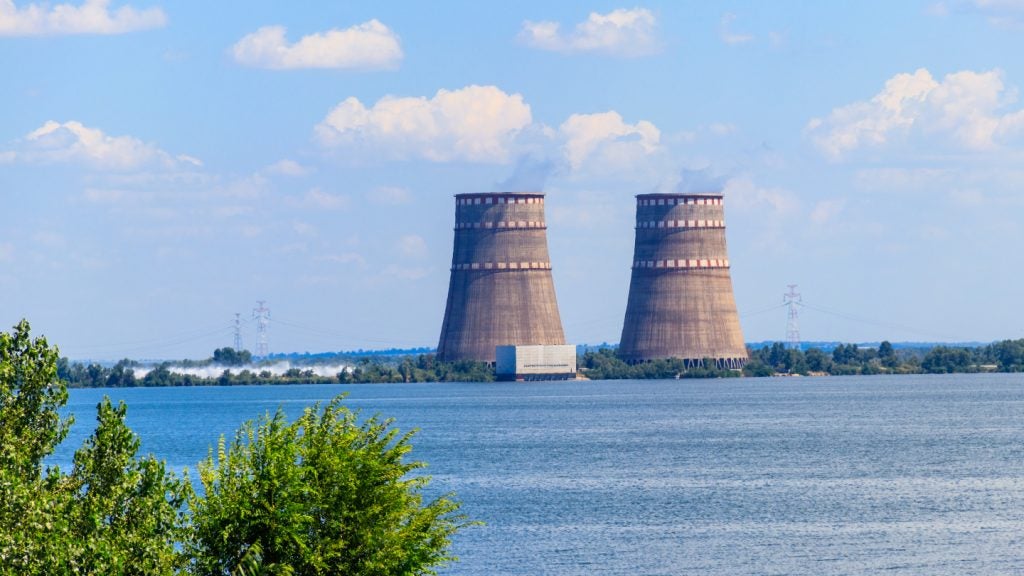The UK has announced a £192m ($242m) loan guarantee to support Ukraine’s nuclear energy industry, following the visit of the Energy Security and Net Zero Secretary, Grant Shapps, to Kyiv this week. Nuclear is Ukraine's main energy source, making up around 60% of the country’s power generation in 2022.
However, the industry has taken a hit since the country's invasion by Russia in February 2022. Visiting Ukraine, Shapps stated that “Putin has used energy as a weapon of war: the action today to support nuclear fuel deliveries will help Ukraine end their reliance on Russian supplies and bolster their energy security.”
The loan will enable UK-based company, Urenco, to supply uranium enrichment services to Ukraine’s national nuclear company, Energoatom. Speaking on the UK’s support of Ukraine, Shapps said: “Our support for Ukraine is unwavering in the face of Putin’s barbaric invasion – the UK continues to stand with Ukraine as they repel Russian attacks and rebuild their country.”
Before the invasion, Ukraine generated energy from four nuclear power plants, including the largest in Europe – the Zaporizhzhia Nuclear Power Station – which is temporarily shut down, held by occupying Russian forces.
Barbara Monterrubio, energy managing analyst at GlobalData, Energy Monitor's parent company, explained the reason for the shutdown: "The Zaporizhzhia Nuclear Power Plant is located in East Ukraine and less than 500km from Rostov in Russia. Ukraine has secured this vital power plant, having cold shutdown the plant's six reactors which has largely limited much of the risk."
While the shutdown has reduced the risk posed by the occupation, it has also reduced the country’s power generation significantly. Monterrubio explains: “Part of the power supply coming from nuclear has been reduced as part of the Russian invasion, as nuclear reactors have been one of the most delicate threats during the conflict. This power reduction can be observed when looking at Ukraine’s 2022 power generation, which was reduced by around 25% compared to 2021 levels.”
Zaporizhzhia is not the only nuclear energy site to be affected by the invasion, with the South Ukraine nuclear plant also facing serious issues. Drones have reportedly been recorded flying low over the site and, in November, the plant lost connection to one of its three 750kV power lines, leading to a 50% reduction in power to one of its three operating reactors. The Khmelnitsky and Rivne power plants have also faced difficulties due to blackouts caused by missile strikes, which cause them to automatically disconnect from the grid.
The impact on nuclear power in Ukraine has, unsurprisingly, been significant, killing the industry's growth and limiting opportunities in the nation’s biggest energy sector.
Trends identified by GlobalData indicate that the invasion marked the curtailing of patent filings in Ukraine's nuclear energy industry, with no filings identified since January 2022. With priorities elsewhere and plants under Russian control, Ukraine nuclear future has become unclear.
However, the invasion has far from killed Ukraine’s alternative energy industry, with active jobs in the industry showing recovery since the invasion, according to GlobalData. Although Ukraine's nuclear industry is suffering, solar panels have been used to provide off-grid solutions, and the country has plans to rebuild greener than ever.
Our signals coverage is powered by GlobalData’s Thematic Engine, which tags millions of data items across six alternative datasets — patents, jobs, deals, company filings, social media mentions and news — to themes, sectors and companies. These signals enhance our predictive capabilities, helping us to identify the most disruptive threats across each of the sectors we cover and the companies best placed to succeed.














